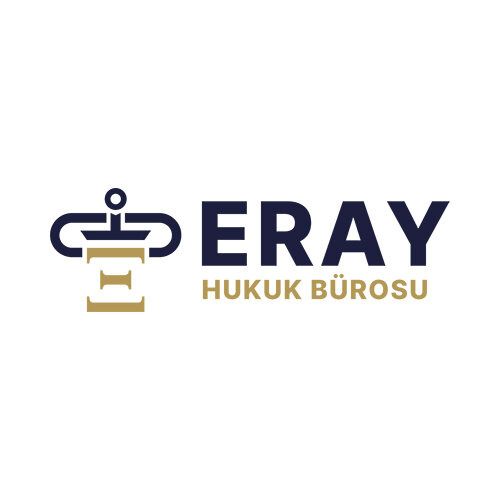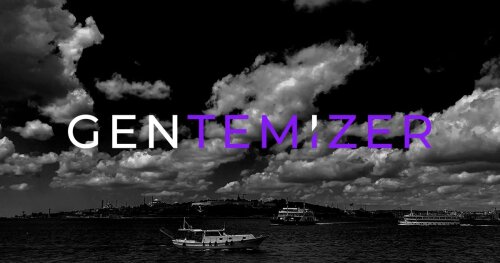Best Data Center & Digital Infrastructure Lawyers in Turkey
Share your needs with us, get contacted by law firms.
Free. Takes 2 min.
Or refine your search by selecting a city:
List of the best lawyers in Turkey
About Data Center & Digital Infrastructure Law in Turkey
Data Center and Digital Infrastructure law in Turkey covers a broad spectrum of regulations and legal frameworks ensuring secure, reliable, and compliant operation of digital facilities and services. With the rapid growth in Turkey's digital economy, data centers play a pivotal role in supporting businesses, government services, and the overall digital transformation. Turkey's central geographic location has further boosted its potential as a regional hub for data centers, requiring specific laws and regulations for data protection, operational standards, and international data flow. Legal issues in this field range from facility establishment to cybersecurity, cross-border data transfer, and compliance with national and international standards. Understanding this legal landscape is crucial for businesses investing or operating in Turkey’s digital infrastructure sector.
Why You May Need a Lawyer
Engaging a lawyer skilled in Data Center and Digital Infrastructure law can be vital for businesses and individuals facing complex regulatory, contractual, or compliance matters. You may require legal advice if you are:
- Establishing or investing in a new data center facility in Turkey
- Negotiating service level agreements or contracts with domestic or international partners
- Dealing with issues of personal data protection and compliance with the Turkish Personal Data Protection Law (KVKK)
- Addressing cybersecurity risks, responses to breaches, and government investigations
- Managing cross-border data transfers and adhering to local and foreign regulatory requirements
- Facing zoning, licensing, or environmental compliance challenges for your physical infrastructure
- Engaged in mergers, acquisitions, or due diligence related to digital infrastructure assets
- Resolving disputes involving service outages, breaches, or liability concerns
Given the highly technical and regulated environment, legal support ensures your operations remain compliant while minimizing risks and optimizing contracts.
Local Laws Overview
Several Turkish laws specifically or indirectly govern data centers and digital infrastructure:
- Personal Data Protection Law (KVKK) No. 6698 - The cornerstone regulation for data privacy, imposing requirements on data controllers and processors, dictating how personal data is collected, stored, transferred, and secured.
- Electronic Communications Law No. 5809 - Covers electronic communications networks and services, relevant for companies providing or relying on data storage and transmission.
- Regulations and Guidance by the Information and Communication Technologies Authority (BTK) - These address licensing, network security, and lawful interception obligations for data centers.
- Environmental Legislation - Data centers must comply with zoning laws, environmental impact assessments, and waste management regulations as dictated by the Ministry of Environment, Urbanization, and Climate Change.
- Sector-Specific Regulations - For government or critical infrastructure clients, data localization requirements or additional security protocols may apply.
- Cross-Border Data Transfer Rules - Transfers of personal data outside Turkey are restricted unless specific safeguards are in place or explicit data subject consent is obtained.
Additionally, general commercial law, labor laws, and intellectual property regulations may impact data center construction, staffing, IP rights, and contract management.
Frequently Asked Questions
What laws regulate data centers in Turkey?
The primary laws are the Personal Data Protection Law (KVKK), Electronic Communications Law, and relevant BTK regulations. Environmental and commercial laws may also apply depending on the project.
Is it mandatory to host personal data inside Turkey?
Certain public sector and regulated industry data must be stored domestically. For other categories, cross-border transfer is possible if requirements under the KVKK are met and proper safeguards are in place.
What permissions are required to build a data center?
Building a data center typically requires zoning approvals, construction permits, and possibly an environmental impact assessment, especially for large-scale facilities.
Are there specific security standards for data centers?
Yes, BTK and relevant sectoral authorities impose technical and security measures for licensed operators. Entities handling personal or sensitive data are legally required to protect that data using appropriate safeguards.
Can overseas investors own data centers in Turkey?
Yes, foreigners can invest in or wholly own data centers, subject to general foreign investment regulations and sectoral restrictions, if any.
What happens if there is a data breach?
Data controllers are required to notify the Turkish Data Protection Authority and affected individuals without undue delay. There may be investigations and penalties for non-compliance.
How are service level agreements (SLAs) enforced?
SLAs are generally governed by Turkish contract law. Courts and arbitral bodies recognize and enforce such agreements, provided they do not contravene public order or mandatory provisions.
Are there incentives for establishing a data center in Turkey?
Regional development incentives, tax advantages, and infrastructure support may be available, depending on the location and scale of the investment.
Who audits compliance with data regulations?
The Turkish Data Protection Authority oversees KVKK compliance, while the BTK supervises telecommunications and internet service matters. Other bodies may be involved depending on sector and activity.
How should disputes be resolved in the data center sector?
Disputes can be resolved through negotiation, mediation, arbitration, or litigation in Turkish courts. Many contracts specify arbitration, especially for international partners.
Additional Resources
If you need more information or wish to consult with expert organizations, consider reaching out to:
- Personal Data Protection Authority (KVKK)
- Information and Communication Technologies Authority (BTK)
- Ministry of Industry and Technology (regarding investment incentives and infrastructure)
- Regional Chambers of Commerce and Industry
- Turkish Data Center Association (DCA Turkey)
- Sector-specific legal and technology consultancy firms
These agencies and organizations provide guidance, regulations, and news for the data center and digital infrastructure ecosystem in Turkey.
Next Steps
If you are considering establishing, investing in, or operating a data center in Turkey, or have questions about compliance and contracts, it is advisable to:
- Identify your specific needs and challenges within the digital infrastructure field
- Gather all relevant documentation, including contracts, investment plans, and previous permits
- Consult with a legal professional experienced in Turkish data center and digital infrastructure law
- Engage early with the relevant authorities and industry organizations for up-to-date information
- Ensure that all agreements with business partners and clients explicitly address compliance, liability, and dispute resolution mechanisms
Taking proactive legal steps will help you avoid costly missteps, streamline operations, and fully leverage Turkey's growing digital infrastructure opportunities.
Lawzana helps you find the best lawyers and law firms in Turkey through a curated and pre-screened list of qualified legal professionals. Our platform offers rankings and detailed profiles of attorneys and law firms, allowing you to compare based on practice areas, including Data Center & Digital Infrastructure, experience, and client feedback.
Each profile includes a description of the firm's areas of practice, client reviews, team members and partners, year of establishment, spoken languages, office locations, contact information, social media presence, and any published articles or resources. Most firms on our platform speak English and are experienced in both local and international legal matters.
Get a quote from top-rated law firms in Turkey — quickly, securely, and without unnecessary hassle.
Disclaimer:
The information provided on this page is for general informational purposes only and does not constitute legal advice. While we strive to ensure the accuracy and relevance of the content, legal information may change over time, and interpretations of the law can vary. You should always consult with a qualified legal professional for advice specific to your situation.
We disclaim all liability for actions taken or not taken based on the content of this page. If you believe any information is incorrect or outdated, please contact us, and we will review and update it where appropriate.
Browse data center & digital infrastructure law firms by city in Turkey
Refine your search by selecting a city.















